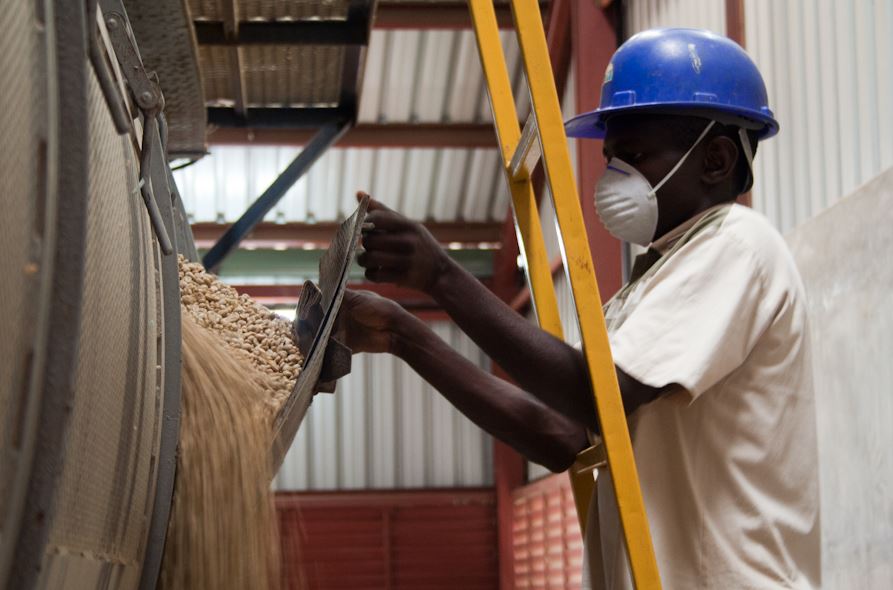Crema Trekkers: Explore Mt Elgon Gibuzale A, Uganda
- 15 June 2018
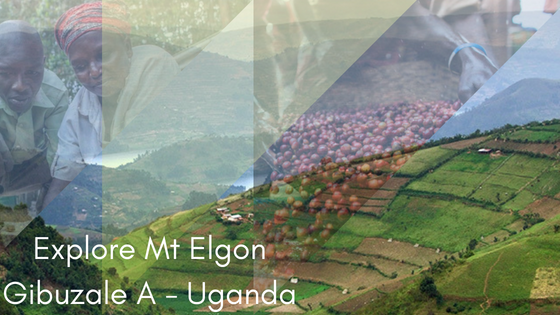
UGANDA COFFEE BEANS
The Uganda single origin coffee beans are Washed processed Bourbon and Typica related cultivars including SL14, SL28 and cherries from the Bugisu region of Mt Elgon. All the cherries are processed at the most remote of the Kyaralanyi region at the Gibuzale washing station. Grown at an altitude of approximately 1,700-2,000m above sea level, with only the ripest cherries used in processing.
The Bugisu region is situated in eastern Uganda where the coffee is grown at moderately high elevations (1,300 to 2,600 meters) on the slopes of Mount Elgon, and are typically of the Bourbon varietal.
SL14 and SL28 were originally selected in Kenya at the Scott Agricultural Laboratories during the high breeding period in the 1930s, hence the prefix ‘SL’. They were primarily selected for their drought resistant qualities, which has proven to be quite fruitful for cash crops in many parts of Africa, but particularly Uganda.
SL14 was selected from a single tree labelled Drought Resistant II (D.R. II). It was first established at Kabete in 1933 and then widely distributed in areas east of the Rift Valley in Kenya. Recent genetic tests have confirmed that SL14 is related to the Typica varietal, and it has become economically important in both Kenya and Uganda.
SL28 is a well-known and well-regarded variety of Africa, suited for medium to high altitudes, but is also susceptible to the major diseases of coffee. SL28 is most notable for its ‘rusticity’, which means it can be left untended for years or even decades at a time and then return to successful production. Some SL28 trees in many parts of Kenya are 60 or 80 years old and are still productive! SL28 was considered the prize selection of this period of intensive breeding. Recent genetic tests have confirmed that SL28 is related to the Bourbon genetic group.
The Uganda single origin coffee is best suited to espresso based coffees, milk or black, and works well in plunger and cold brew too.
Tasting Notes: Full body with plenty of acidity and well balanced flavours of caramel, apple and dark chocolate.
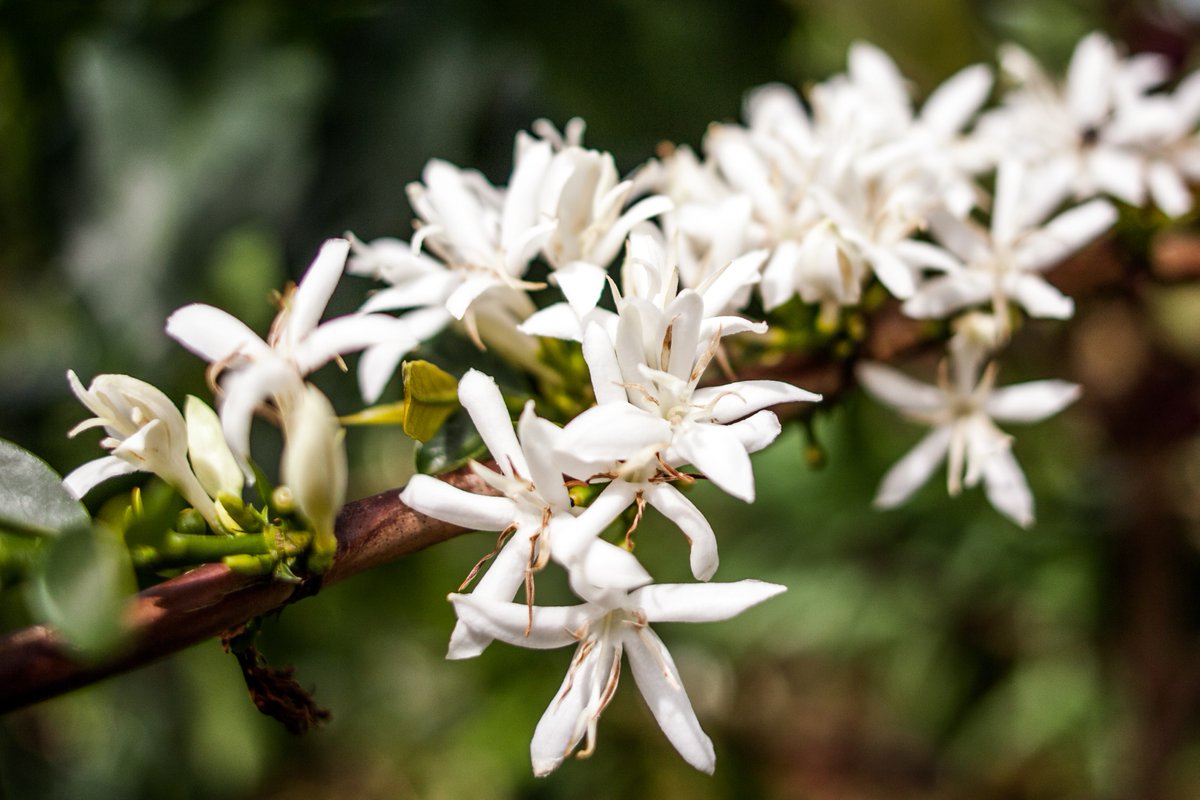
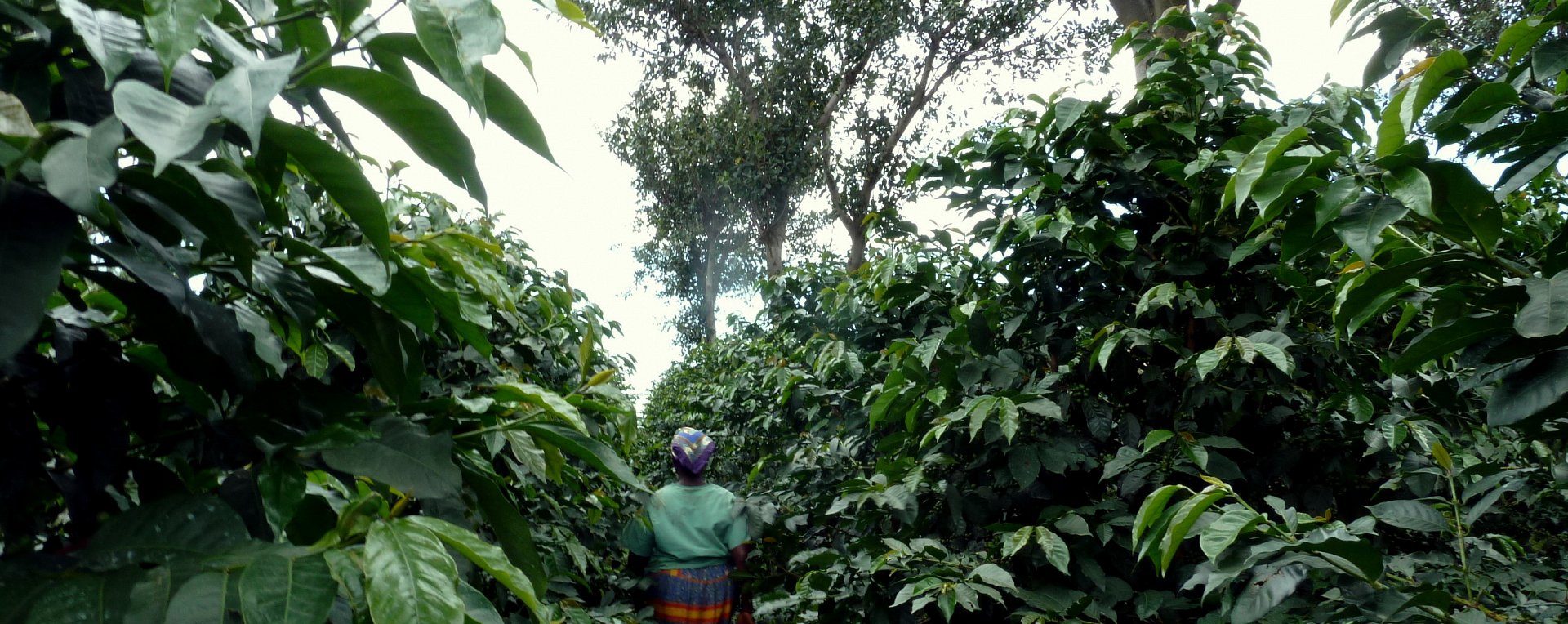
MT ELGON GIBUZALE A – UGANDA
Gibuzale is part of an Arabica-focused area on the middle and lower slopes of Mt. Elgon, an inactive volcano in Eastern Uganda and home to the Gibuzale Washing Station, the most remote of all the Kyagalanyi (pronounced. CHUG-uh-lani) stations. The average farm size is 2.2 acres and each farmer has around 950 coffee trees, and farmers in the region bring their cherries to sell to the washing station, although during the heavy rains access to the station can become quite difficult. The climate has traditionally been predominantly rainy during the harvesting months, however a changing climate is bringing less rain and higher temperatures, making the choice of drought resistant varietals a positive one for economic longevity for this developing coffee nation.
For most Ugandan farmers, coffee is their most important cash crop and deliver their coffee cherries to the wet mills during the day. Each delivery is overseen by a field officer who makes sure at least 95% of the cherries are red and fully ripe. If they’re not, the farmer must move to a sorting area to sort through the bag until the standard is achieved. This encourages farmers to be more selective for higher quality cherries during the harvesting process.
Other methods employed by the washing station to continuously improve quality including the opening of a model farm. The model farm acts as a learning centre for the farmers, focusing on both good agricultural and business practices. These modules are conducted every two months and focus on key topics such as Know Your Farm, Profitability, and Envisioning the Future. The model farms are professionally managed by a team of field officers and follow the crop cycle to ensure the information is not only up to date with contemporary standard practices, but is also immediately applicable to participating producers.
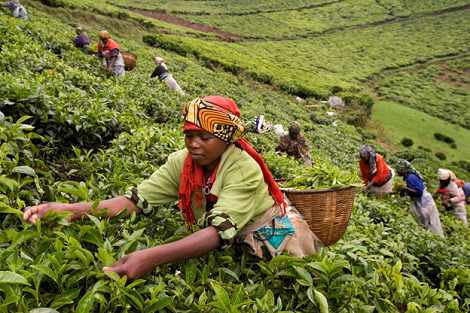
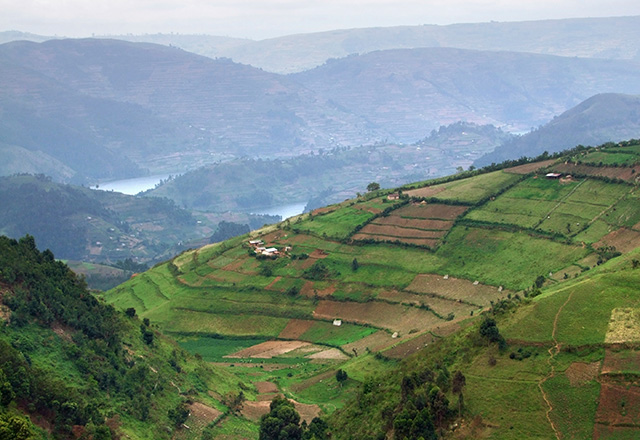
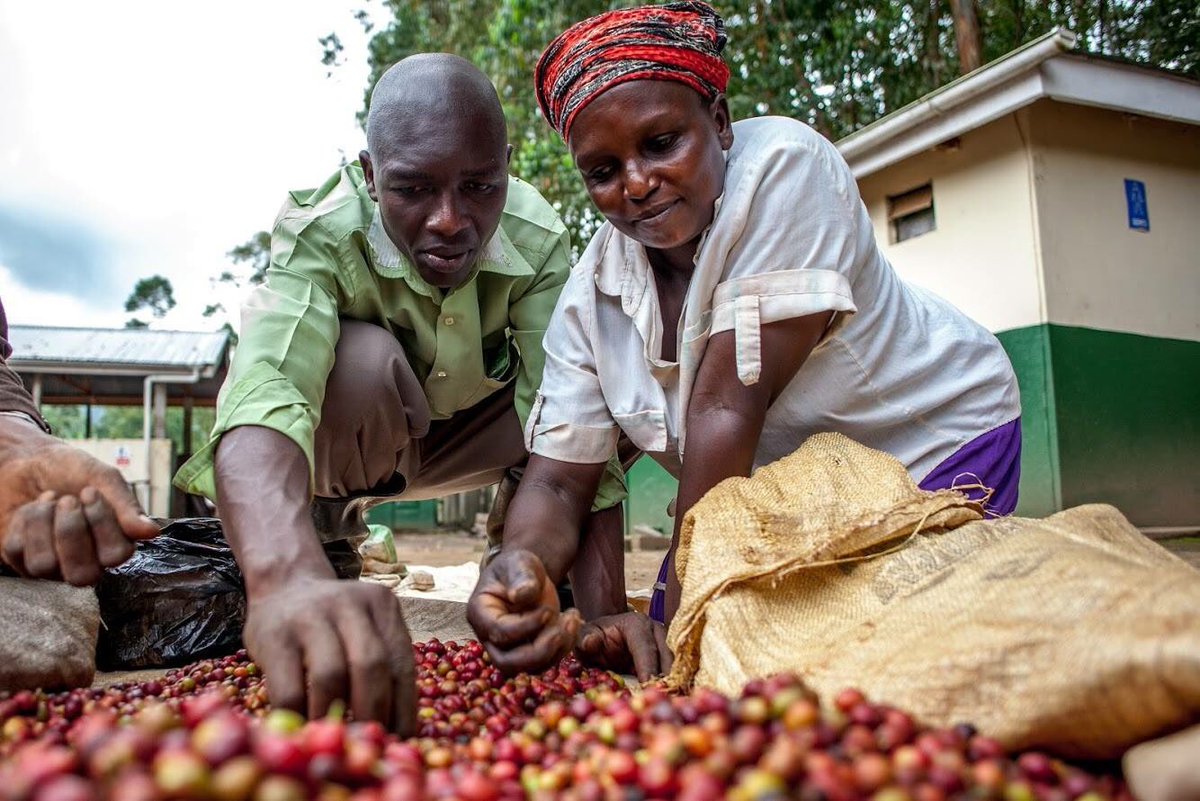
THE GREEN BEAN PROCESS
The cherries selected by the station are pulped in the evening with a ‘Penagos’ machine, which separates the premium quality and lower grade beans. The premium quality and second-grade coffee beans are fermented separately for 12 hours or overnight, then the mucilage and any remaining ‘floaters’ are removed. The parchment is then immediately placed outside on dripping trays (also known as raised African beds) to dry for the rest of the day. This station uses a combination of traditional drying and mechanical drying to bring the moisture content down to 12%.
In areas with rainfall occurring throughout the drying period, farmers will often use raised African beds, which allow air to circulate under the coffee and for water to drain away more easily. This is because the raised beds are quite high off the ground, made with a wooden frame and nylon mesh for drainage. The coffee is raked and turned, dried in much the same way as patio drying but with the added bonus of the raised beds which generally result in more even drying and a better quality finished product.
This particular station also uses mechanical drying to finish the process. The coffee is put into machines fuelled by gas or wood, which effectively work like tumble dryers, slowly drying out the coffee with temperatures not exceeding 42C whilst keeping the coffee in motion. While this method allows for farmers to get a return for their crop more quickly it may have the undesirable result of not drying the coffee out evenly and resulting high water activity levels.
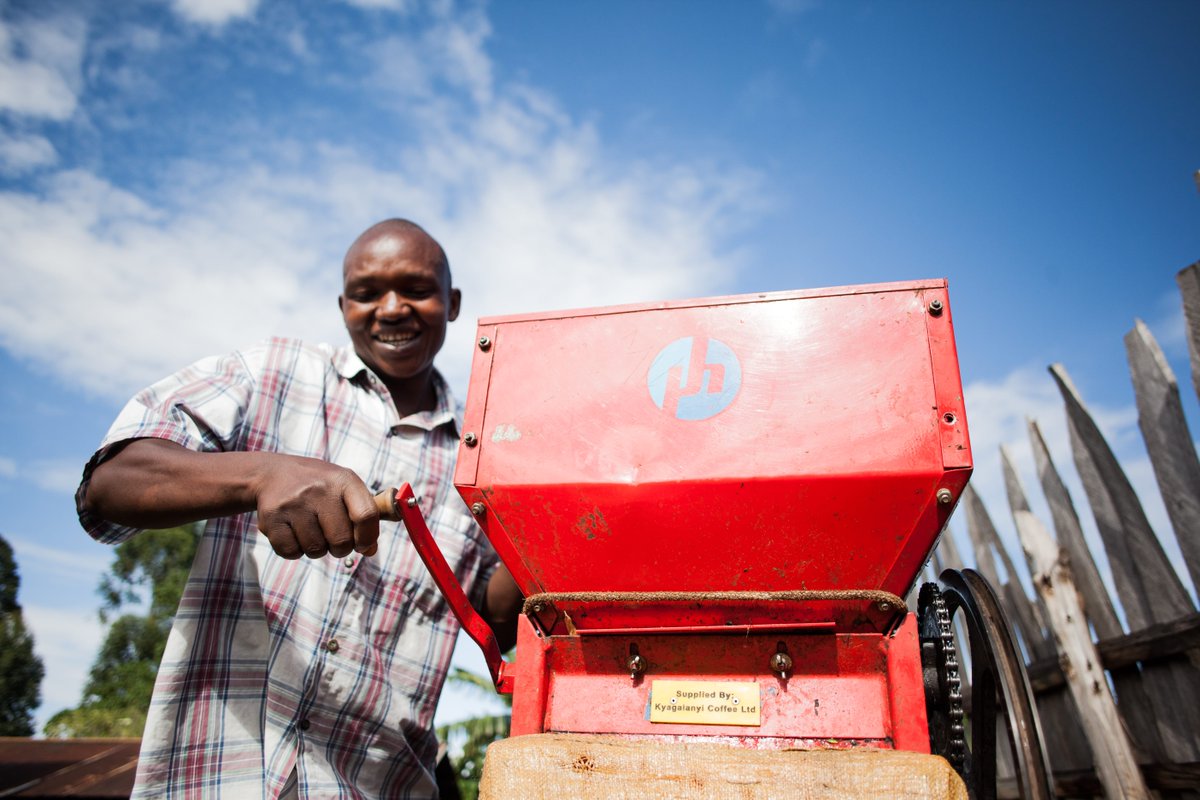
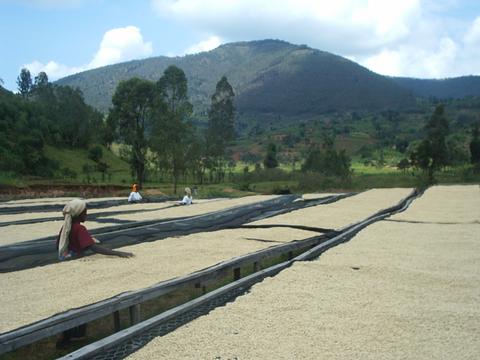
Image Sources:
https://handpicked.cafedirect.co.uk/blogs/news/the-next-step-of-processing-coffee-drying
http://www.burmancoffee.com/blog/uganda-org-bugisu-double-washed/
http://www.kahawatu.org/uganda-1/
http://cf.jiraygroup.com/uganda-coffee/
https://twitter.com/genuine_origin

